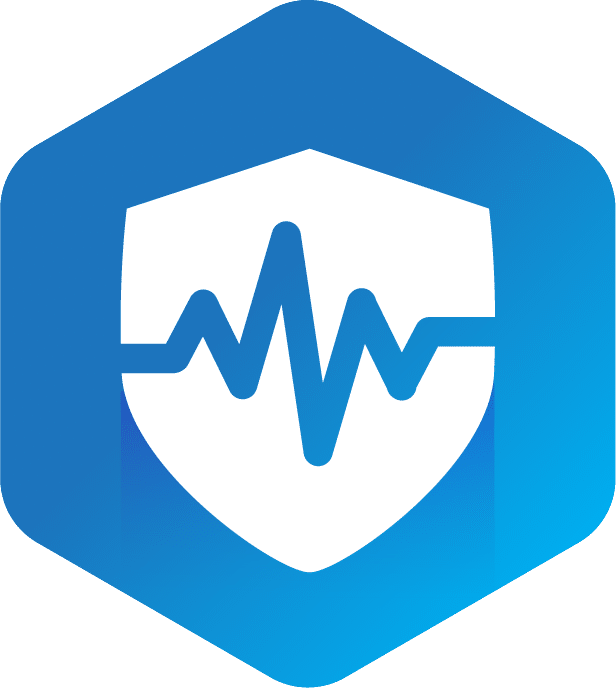Are you a coach in the field of mental health or personal development? Do you find yourself wondering whether HIPAA (Health Insurance Portability and Accountability Act) applies to your practice?
In this article, we will explore the regulations surrounding HIPAA and its implications for coaches like yourself. While HIPAA compliance requirements are typically associated with hosting providers offering secure data storage solutions, it is important to understand how these regulations may impact your work as a coach.
We will define the role of coaches in personal development, delve into privacy and confidentiality standards within coaching, and clarify the boundaries of HIPAA for coaches. Additionally, we will provide best practices for ensuring client privacy and compliance.
By the end of this article, you will better understand whether or not HIPAA applies to ‘coaches’ like mental health coaches, life coaches, and more.
Did you know that HIPAA regulations apply to mental health coaches, life coaches, and other similar professions? Let’s dive into understanding how these regulations impact them!
HIPAA, which stands for the Health Insurance Portability and Accountability Act, sets guidelines for protecting sensitive health information. While it primarily applies to healthcare providers, it also applies to certain professionals handling protected health information (PHI).
Mental health and life coaches may encounter PHI when working with clients who disclose personal health information during sessions. As a result, they must comply with HIPAA regulations to ensure the privacy and security of this information. This means implementing safeguards such as secure storage of client data, encrypted communication channels, and strict access controls.
Understanding HIPAA regulations is crucial for coaches in order to maintain ethical standards and protect their clients’ confidentiality.
Coaches play a crucial role in personal development, guiding individuals towards their goals and fostering growth and self-improvement. Whether mental health or life coaches, these professionals provide support and guidance to help clients overcome challenges and achieve their desired outcomes.
While HIPAA regulations primarily apply to healthcare providers who handle protected health information (PHI) electronically, the role of coaches in personal development falls outside the scope of HIPAA compliance. Coaches typically don’t have access to or handle PHI as HIPAA defines. Instead, they focus on providing guidance, accountability, and motivation to help individuals improve various aspects of their lives.
It’s important for coaches to maintain confidentiality within the boundaries of their coaching relationship, but HIPAA regulations don’t specifically govern their practices.
While privacy and confidentiality are paramount in the coaching profession, it is essential to establish clear boundaries to uphold the integrity of the client-coach relationship. Coaches, including mental health coaches and life coaches, must adhere to certain standards to ensure the protection of their clients’ private information. While HIPAA compliance may not directly apply to coaches in all cases, it is still crucial for them to prioritize privacy and confidentiality. This includes obtaining informed consent from clients regarding using and storing their personal information, implementing secure communication channels, and maintaining strict confidentiality protocols. By doing so, coaches can create a safe and trusting environment where clients feel comfortable sharing sensitive details about their lives. Additionally, coaches should stay updated on any relevant laws or regulations that may impact their practice to provide their clients the highest level of privacy protection.
| Privacy & Confidentiality Standards | ||
| Obtain Informed Consent | Implement Secure Communication Channels | Maintain Strict Confidentiality Protocols |
| Respecting Client’s Privacy | Protecting Sensitive Information | Adhering to Professional Ethics |
| Building Trusting Relationships | Staying Updated on Laws/Regulations | Ensuring Client Confidence |
Table: Key Privacy & Confidentiality Standards for Coaches
Establishing clear boundaries around privacy and confidentiality is crucial in the coaching profession. This requires coaches to prioritize informed consent, secure communication channels, and strict confidentiality protocols to protect clients’ sensitive information.
While HIPAA compliance typically applies to healthcare providers such as therapists, it may not directly apply to health coaches or life coaches. This is because these individuals do not typically provide medical treatment or diagnosis. However, it’s important for coaches to understand the distinction between coaching and therapy to ensure ethical practice.
Health coaches focus on helping clients make positive lifestyle changes related to nutrition, exercise, and overall well-being. Life coaches assist clients in setting goals and navigating personal or professional challenges. Coaches do not delve into deep emotional issues like therapists who diagnose and treat mental health conditions.
Coaches should still take privacy seriously by implementing best practices for data security and maintaining client confidentiality.
To ensure the privacy and compliance of your clients, it’s crucial to implement best practices for data security and maintain strict confidentiality protocols.
As a coach, even though you may not be directly covered by HIPAA (Health Insurance Portability and Accountability Act), it is still important to prioritize client privacy. Start by obtaining clients’ written consent regarding using their personal information and ensure that all communication channels are secure and encrypted.
Additionally, create clear policies on how client data will be stored, accessed, and shared, while also regularly reviewing and updating these policies as needed. Training your staff or any third-party vendors involved in handling client information on HIPAA compliance requirements is also essential.
By following these best practices, you can demonstrate your commitment to protecting client privacy and maintaining compliance with applicable regulations.
How does HIPAA affect therapists and coaches?
HIPAA applies to healthcare providers, including therapists and coaches, who transmit or store protected health information (PHI) electronically. It sets standards for safeguarding PHI and ensuring patient privacy and confidentiality.
Can a life coach be HIPAA compliant?
While life coaching is not typically considered a healthcare service, and life coaches may not be subject to the same HIPAA requirements as therapists, it is still essential to maintain client confidentiality and handle personal health information with care.
What is the difference between coaching and therapy?
Coaching focuses on helping individuals set goals, develop skills, and make positive changes in their lives, while therapy aims to treat mental health conditions and explore deeper emotional issues. The distinction between the two can vary depending on the specific practices and qualifications of the professional involved.
Is HIPAA compliance necessary for coaching services?
While HIPAA compliance may not be mandatory for all coaching services, it is crucial to prioritize client confidentiality and handle personal health information appropriately. This helps build trust and ensures the protection of sensitive information.
What are the key features of the Health Insurance Portability and Accountability Act?
The Health Insurance Portability and Accountability Act includes provisions for protecting patients’ health information, enabling individuals to access their medical records, ensuring the security of electronic PHI, and establishing guidelines for HIPAA compliance for covered entities.
Can a coach work with clients who have mental health issues?
Coaches can support and guide clients dealing with various life challenges, but they should not attempt to diagnose or treat mental health conditions. If a client has mental health issues, they need to consult a licensed mental health professional for appropriate care.
Does HIPAA allow the sharing of personal health information?
HIPAA permits sharing personal health information between healthcare providers for treatment, payment, and healthcare operations purposes. However, it emphasizes the need for obtaining patient consent and maintaining privacy and security standards.
What role does insurance play in HIPAA compliance for coaches and therapists?
Insurance coverage can vary depending on the specific policy and provider. Coaches and therapists need to understand their insurance obligations and ensure compliance with HIPAA.
In conclusion, as a coach in the field of mental health or life coaching, it’s important to understand HIPAA regulations and the boundaries they set. While HIPAA compliance requirements are typically associated with hosting providers, coaches must still prioritize client privacy and confidentiality.
Although HIPAA may not directly apply to coaches, it’s best practice to implement measures to ensure client privacy and compliance. Doing so lets you maintain trust with your clients and demonstrate your commitment to their well-being.

